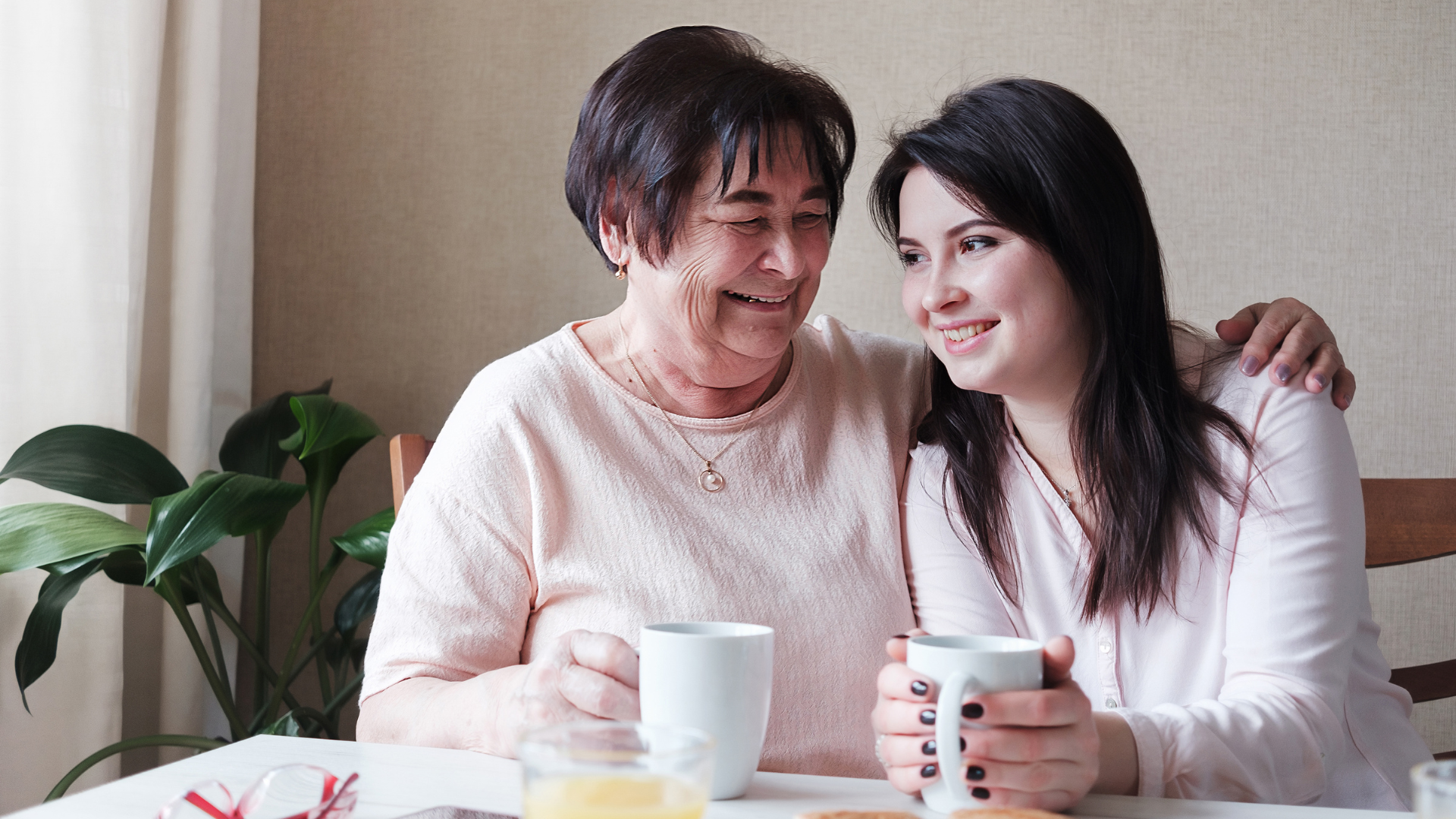
Updated: November, 2025
Feeling overwhelmed caring for Mom or Dad? You’re not alone.
As a new year begins, many of us naturally pause to reflect on our health, our energy, and what we hope the next few months will look like. But if you’re caring for an aging parent while balancing work, family life, and your own needs, that sense of renewal can feel far away.
Millions of Canadians now support elderly loved ones at home—and while caregiving is meaningful, it can also be exhausting. Many family caregivers describe feeling resentful, isolated, or pulled in too many directions. And despite doing everything you can, it may still feel like you’re falling behind.
The truth is simple:
Carrying too much for too long doesn’t make you a better caregiver. It makes you a depleted one.
And you deserve support just as much as your loved one.
What does caregiver stress look like?
Caregiver stress can sneak up on you. What starts as occasional worry can turn into chronic strain if you rarely get a break.
Emotional signs
- Feeling overwhelmed most days
- Irritability or resentment
- Withdrawing from friends and family
- Losing interest in hobbies or activities
- Trouble concentrating or making decisions
Physical signs
Stress often shows up in the body, too. According to the Government of Canada’s caregiver health resources, common symptoms include:
- ongoing fatigue
- headaches or tension
- digestive issues
- weight changes
- sleep disturbances
- lowered immunity
If these symptoms feel familiar, it may be time to reassess your caregiving load.
It’s okay (and important) to talk about the hard parts
Many caregivers feel guilty admitting that they’re overwhelmed. You may worry it makes you look ungrateful, impatient, or disloyal. But pretending everything is fine only deepens the pressure you’re under.
Caregiving is emotional. It’s demanding. And it changes family dynamics in ways that can be complicated.
Acknowledging the hard parts doesn’t diminish your love for your parent.
It honours your reality — and opens the door to real solutions.
If you’re feeling ongoing stress, the Caregiver Help Hub from the Alzheimer Society of Canada offers tools, support groups, and coping strategies that many families find helpful.
How to reduce caregiver stress (and protect your well-being)
Some pressure can be relieved through small adjustments. Others require extra support. Try combining the strategies below to build a healthier balance.
1. Make small but meaningful changes
You may benefit from:
- simplifying routines
- setting realistic boundaries
- asking family to share specific tasks
- using checklists, calendars, and medication apps
- scheduling regular downtime (even 15 minutes helps)
Small changes don’t solve everything, but they lighten the load.
2. Connect with people who understand
Support groups—online or in person—can help you feel seen and understood. A mental health professional can help you navigate:
- stress
- grief
- complex family emotions
- burnout
- role changes
The Canadian Mental Health Association provides mental health resources and support options across the country.
3. Ask for hands-on help
If your loved one can’t be left alone or your caregiving responsibilities are nonstop, it’s not only okay to ask for help — it’s essential.
You may benefit from:
- respite care (a few hours or a few days)
- help with meal prep or personal care
- overnight support
- medication reminders
- companionship and supervision
- transportation to appointments
Even occasional help creates breathing space.
If you’re unsure how much support your loved one needs, explore our Companionship & Respite Care Services for practical examples and guidance.
How Just Like Family can help
When the pressure becomes too heavy, our team is here to provide dependable, compassionate support. Respite care doesn’t replace you—it strengthens you by giving you space to rest and recharge.
We offer personalized in-home care, including:
- personal care
- meal preparation
- companionship
- homemaking
- transportation
- appointment support
- safety monitoring
- cognitive support
- overnight care
You’ll receive consistent updates and open communication every step of the way. Our caregivers bring warmth, skill, and respect to every interaction—just like we would want for our own families.
Caregiving is an act of love, but it shouldn’t come at the cost of your own health or happiness. If you’re feeling overwhelmed, it’s not a sign you’ve failed. It’s a sign you deserve more support.
Whenever you’re ready, Just Like Family Home Care is here to help you create a healthier, more sustainable balance. Reach out to us or book your FREE in-home care consultation today.